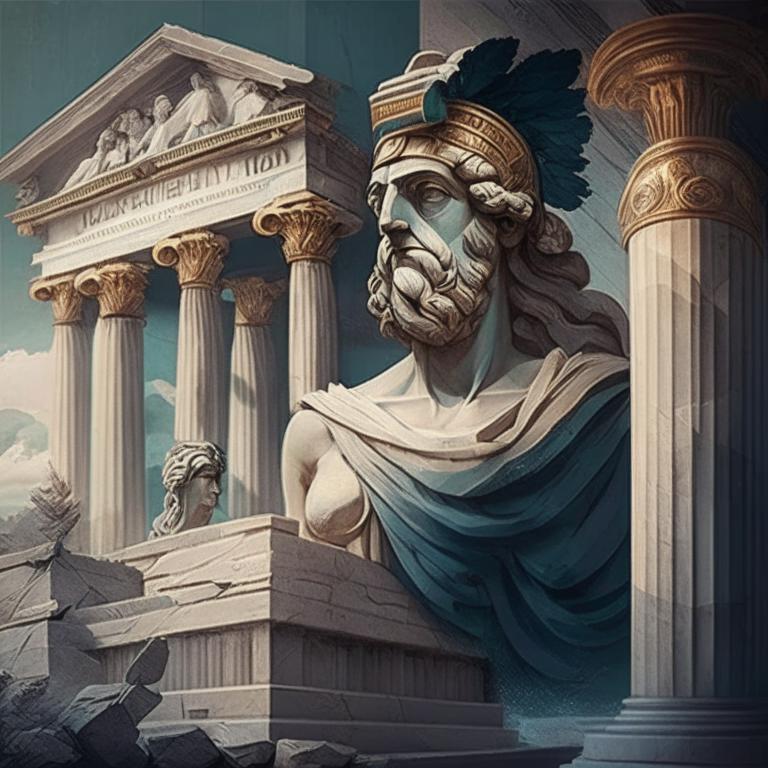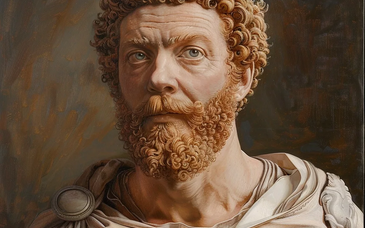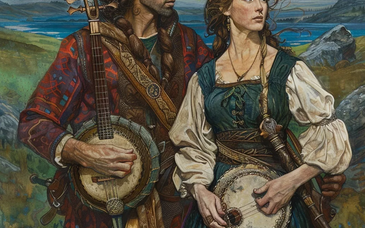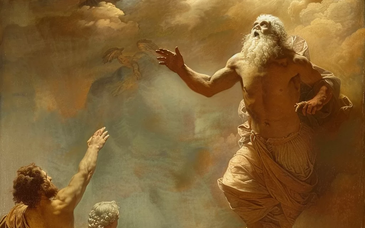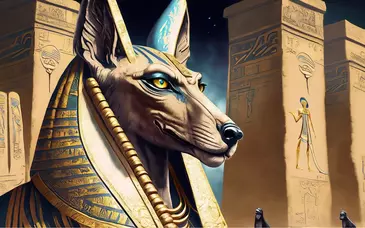From Plutarch's Lives, still inspirational after 19 centuries:
15 Ancient Greek Heroes
from Plutarch's Lives
Ploutarcou
A modern English edition, abridged and annotated by Wilmot H. McCutchen
Preface
It's brief, so start here, then read these biographies in chronological order:
Theseus
The Athenian Adventurer (c. 1300 B.C.)
Theseus suppressed crime and brought the natives of Attica together into the first democracy. He saved the Athenian children from the Minotaur, but his kidnap of the queen of the Amazons brought trouble, and he ended his days in disgrace.
Lycurgus
The Father of Sparta (c. 800 B.C.)
Lycurgus established harmony, simplicity, and strength in Sparta. This warrior society tamed its youth through systematic education aimed at developing leadership, courage, public spirit, and wisdom.
Solon
The Lawmaker of Athens (c. 600 B.C.)
Athens, unlike Sparta, was a money-mad commercial city. The constitution framed by Solon mitigated the class struggle between the rich and the poor, and allowed for the growth of democratic institutions.
Aristides
"The Just" (530 - 468 B.C.)
Aristides was so respected throughout Greece for his fairness that Athens assumed the leadership of the alliance against the Persian invaders. His character is a model for all ages.
Pericles
"The Olympian" (495 - 429 B.C.)
By the power of his eloquence, and the money embezzled from Athens' unwilling allies, Pericles built Athens into a beautiful city and a powerful empire. Athenian imperialism, however, led to war with Sparta, known to history as the Peloponnesian War.
Nicias
The Slave of Fear (died 413 B.C.)
The turning point of the war with Sparta was the disastrous Sicilian Expedition eagerly undertaken by the greedy Athenians. Nicias was the reluctant leader in this debacle.
Agesilaus
The Lame King of Sparta (444 - 360 B.C.)
Agesilaus inherited the Spartan throne after Sparta had defeated Athens in the Peloponnesian War. At that time, Sparta was the undisputed master of Greece and the Aegean. Because of his stubborn lust for conquest, Agesilaus violated the laws of Lycurgus against imperialistic ventures and fighting too much with the same enemy. By the time Agesilaus died, Sparta had lost most of its prestige and power.
Pelopidas
The Freedom Fighter (410 - 364 B.C.)
Pelopidas led the Thebans to recover their liberty, then he led them to victory over the invincible Spartans. From beginning to end, his was the life of a hero.
Dion
The Savior of Syracuse (409 - 354 B.C.)
Sicily was an important part of the Greek world. Dion led the struggle against tyranny in its largest city, Syracuse. Betrayal and ingratitude were his reward for indulging the democrats of Syracuse.
Timoleon
The Friend of Fortune (411 - 336 B.C.)
Against heavy odds, but with the help of the gods, Timoleon took up where Dion had left off, and liberated Sicily from barbarians and tyrants. His courage and wisdom established peace and prosperity where before there had been desolation and war.
Alexander
"The Great" (356 - 323 B.C.)
In an amazing eleven-year journey of conquest, young Alexander of Macedonia conquered all the way from Egypt to India. Behind him came Greek institutions and the Greek language, which became the standard of the ancient world. The intoxication of power caused Alexander to become strange to his friends, and he died unhappy.
Phocion
"The Good" (402 - 318 B.C.)
After her defeat in the Peloponnesian War, and her surrender to the power of Macedonia, Athens became a decadent democracy. Phocion did his best to save his fellow citizens from their own foolishness, and at last he earned the reward of Socrates.
Pyrrhus
The Fool of Hope (319 - 272 B.C.)
In Pyrrhus' wild career of restless trouble-making, we see a soul incapable of satisfaction. He was a mighty man of war, and nearly conquered Rome, but he could never finish what he started before getting distracted by a new project.
Agis
The Reformer of Sparta (reigned 245 - 241 B.C.)
The love of money had virtually destroyed the laws of Lycurgus in Sparta by the time Agis became king. This idealistic young man tried to restore the old way of life that had made Sparta great, but he was defeated by the power of greed.
Philopoemen
"The Last of the Greeks" (252 - 182 B.C.)
Philopoemen led the last remnants of resistance to the creeping domination of Rome in Greece. In this austere general, we see an indomitable character, superior to his circumstances.
Postscript: Plutarch (c. 40 - 120 A.D.)
Who was Plutarch, and why was his work such a hit in the Renaissance? Why has the Lives nearly disappeared after being long at the top of the Western classical canon?
Chronology Of Ancient Greece
A timeline so you can see the flow of events during the rise and fall of Ancient Greece.
